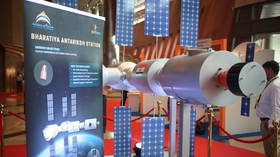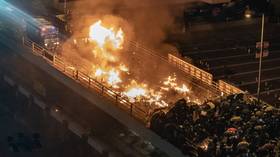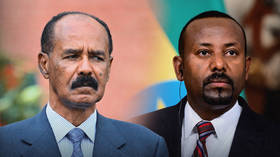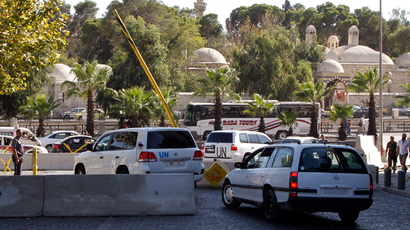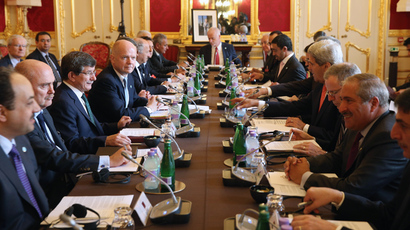CNN cuts ‘most crucial points’ from interview with Russia's UN envoy on Syria
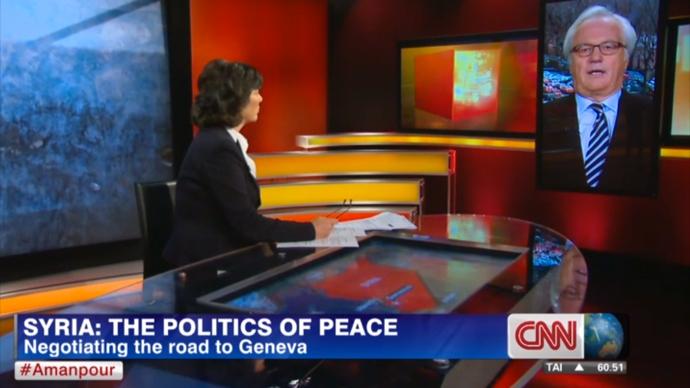
CNN has made significant cuts to its interview with the Russian Permanent Representative to the United Nations, Vitaly Churkin, most notably his comments on the number of people that actually support Syrian President Bashar Assad.
[UPDATE: In the wake of the media stir, CNN
published a full transcript of the interview on its website.
In response to a request from RT, the broadcaster issued this
statement:
“The Amanpour team conducted a lengthy interview, making it
clear that it was taped and would be cut down for length and time
on-air. This is normal practice for taped interviews. We never do
anything to an interview that would alter its meaning.” ]
Questions considered by Russia to be of key importance to the
ongoing conflict in Syria were absent from the Tuesday night
show with Christiane Amanpour.
The first concerned Assad’s role in the interim period, which the
Russian envoy said should be up to the people and no one else.
Churkin calls attention to the “fact of life that many
Syrians, a large segment of the Syrian population, are supporting
President Assad, [which] has to be taken into account.”
“So let's have the dialogue started and let's allow the
Syrians to decide what kind of path they need to take to end this
conflict," the envoy stressed.
The unedited version of Churkin’s words appears on the website of
Russia’s permanent mission to the UN.
Another topic, which CNN felt was unnecessary in the final version of the Amanpour show, was to do with the rebels’ role in the conflict. The envoy said that any conditions they might have for joining the upcoming Geneva talks should be put aside in favor of the bigger picture – which is getting to the table.
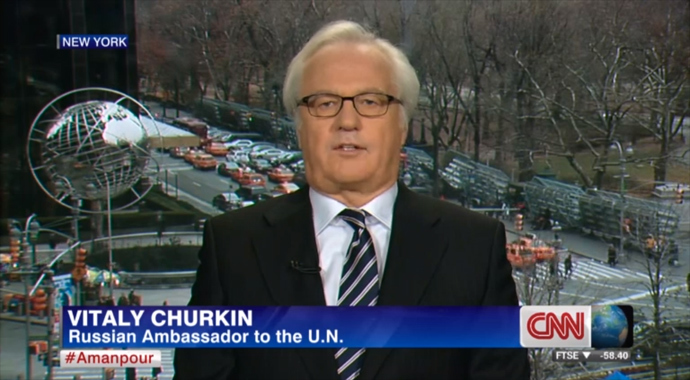
Despite the apparent differences in how Russia and Western powers
view resolution of the Syrian crisis, the necessity of the
upcoming January 22, 2014 event is something both agree on and
have worked hard to promote, albeit with emphasis on different
things.
The repeatedly delayed peace talks will bring together Syrian
President Bashar Assad’s government and the opposition for the
first time since the bloody conflict began in March of 2011.
Despite their confirmed participation, the warring sides likewise
see the talks going in two completely different directions. The
rebels see the event as a platform for the removal of Assad from
power, as its specific aim; while Assad has stated that he has no
intention of leaving office, but has repeatedly voiced his
support for a bloodless, diplomatic solution. The country’s
Foreign Ministry has said that its representatives will be going
to Geneva not to hand over power to anyone, but to meet with
those “who support a political solution for Syria's
future,” AP quoted the statement as saying on Wednesday.
Another of Churkin’s comments cut by the Amanpour show about the
rebels concerned the concerted efforts on their part to hamper
humanitarian aid delivery to the war-stricken population.
Churkin made it clear that the latter is being done by the
insurgents in agreement with their foreign sponsors.
Drawing a comparison between the warring sides, Churkin said that
achieving progress on the humanitarian front is much easier where
Damascus is concerned, but this was not the case with the rebels,
because “nobody knows who is influencing those hundreds, or
dozens at least, of armed groups on the ground,” the envoy
explained.
"We need to identify those countries and they need to assume
responsibility for dealing with those groups so that they will
not prevent the evacuation of the population from besieged
areas," Churkin added, alluding to the problem of the
evacuation of IDPs (internally displaced persons) from volatile
areas.
“Because over the past few months,” he went on, “there have been a number of situations when the Syrian government agreed to the evacuation of the population, but the opposition groups prevented that from happening."
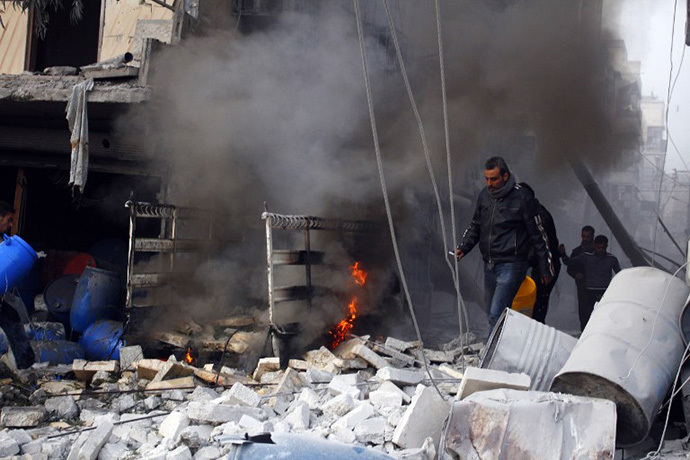
And finally, Russia’s UN envoy touched on a point that he
believes has received little to no coverage in Western media, and
that is the evidence that unambiguously points to the rebels’
apparent disinterest in alleviating the suffering of the people
whose wellbeing they claim to care for:
"Whenever the population is leaving various besieged areas they move to the territories controlled by the Syrian government, it says a lot about whom the population is relying on for providing humanitarian support".
‘It is beyond professionalism or understanding’
Speaking to ITAR-TASS, Russia’s UN representative expressed
regret that the complete interview did not make the CNN cut and
censored ‘the most crucial’ issues to the resolution of the
Syrian crisis.
Russian Foreign Ministry spokeswoman, Maria Zakharova, said that “the fact that CNN has cut some crucial points on Syria from the Churkin interview goes way beyond the bounds of professionalism, or even understanding… such moves by Western media aimed at removing bits and pieces of information it deems “unnecessary” to its viewers’ broader understanding, are becoming the rule and not the exception – especially where Russian officials are concerned.”
Any attempts by CNN to justify and explain their actions, for
instance by limited on-air time or irrelevance of edited pieces,
are baseless, Zakharova said.
"I don't know whether the US Ambassador to the Russian
Federation, Michael McFaul, who has so many times criticized
Russian media outlets, will comment on this situation with the
American channel, but I know that Vitaly Churkin is a
professional, is perfectly fluent in English and is a welcomed
guest at all the world's media," Zakharova said.


